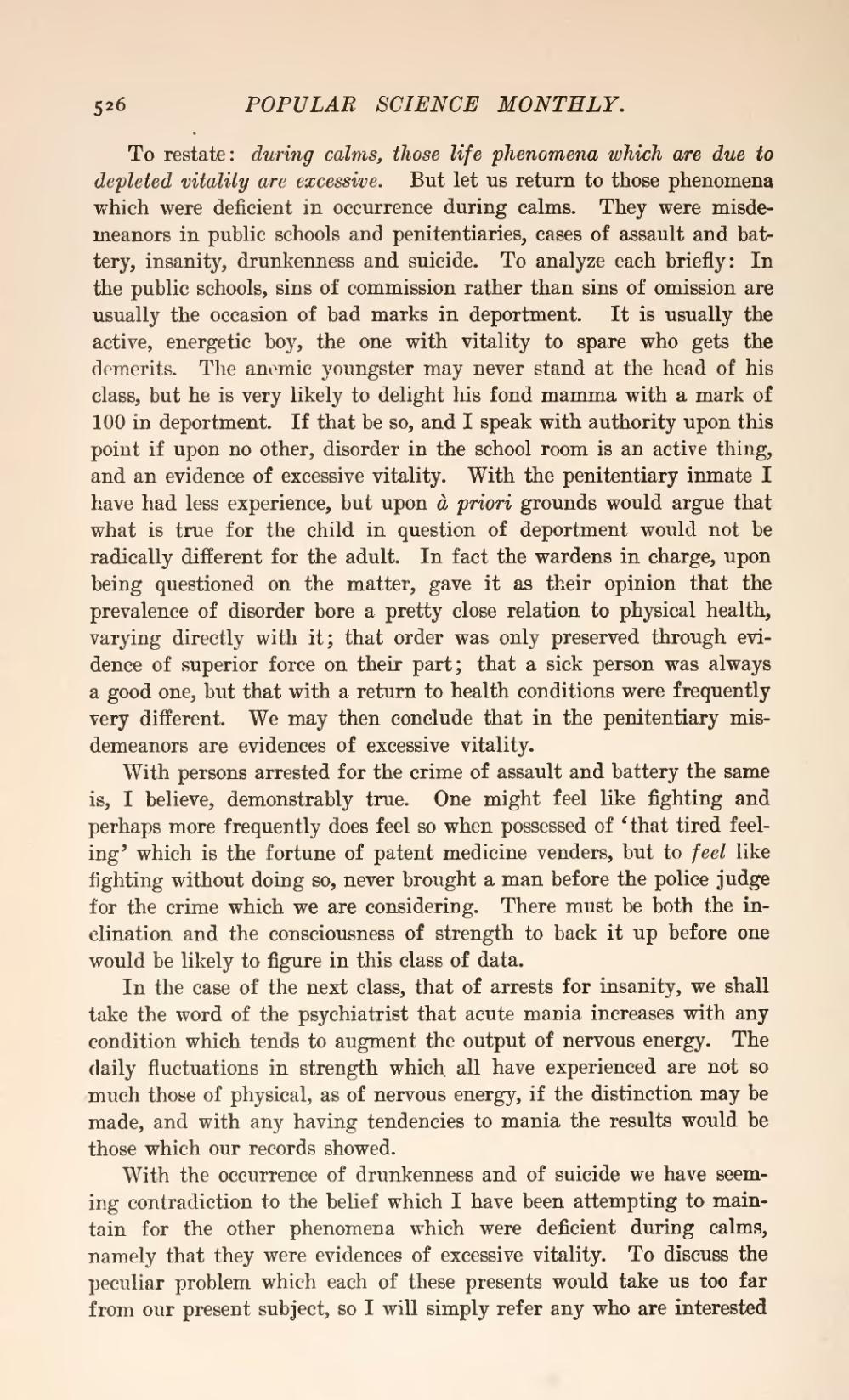To restate: during calms, those life phenomena which are due to depleted vitality are excessive. But let us return to those phenomena which were deficient in occurrence during calms. They were misdemeanors in public schools and penitentiaries, cases of assault and battery, insanity, drunkenness and suicide. To analyze each briefly: In the public schools, sins of commission rather than sins of omission are usually the occasion of bad marks in deportment. It is usually the active, energetic boy, the one with vitality to spare who gets the demerits. The anemic youngster may never stand at the head of his class, but he is very likely to delight his fond mamma with a mark of 100 in deportment. If that be so, and I speak with authority upon this point if upon no other, disorder in the school room is an active thing, and an evidence of excessive vitality. With the penitentiary inmate I have had less experience, but upon à priori grounds would argue that what is true for the child in question of deportment would not be radically different for the adult. In fact the wardens in charge, upon being questioned on the matter, gave it as their opinion that the prevalence of disorder bore a pretty close relation to physical health, varying directly with it; that order was only preserved through evidence of superior force on their part; that a sick person was always a good one, but that with a return to health conditions were frequently very different. We may then conclude that in the penitentiary misdemeanors are evidences of excessive vitality.
With persons arrested for the crime of assault and battery the same is, I believe, demonstrably true. One might feel like fighting and perhaps more frequently does feel so when possessed of 'that tired feeling' which is the fortune of patent medicine venders, but to feel like fighting without doing so, never brought a man before the police judge for the crime which we are considering. There must be both the inclination and the consciousness of strength to back it up before one would be likely to figure in this class of data.
In the case of the next class, that of arrests for insanity, we shall take the word of the psychiatrist that acute mania increases with any condition which tends to augment the output of nervous energy. The daily fluctuations in strength which all have experienced are not so much those of physical, as of nervous energy, if the distinction may be made, and with any having tendencies to mania the results would be those which our records showed.
With the occurrence of drunkenness and of suicide we have seeming contradiction to the belief which I have been attempting to maintain for the other phenomena which were deficient during calms, namely that they were evidences of excessive vitality. To discuss the peculiar problem which each of these presents would take us too far from our present subject, so I will simply refer any who are interested
